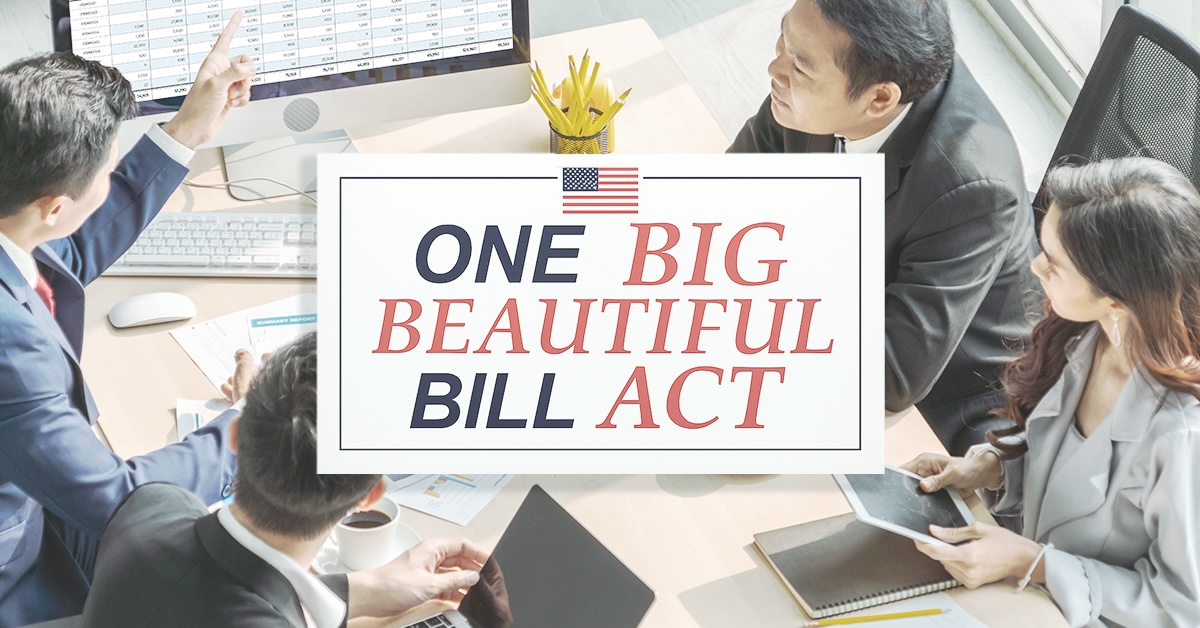The New Tax Credit Landscape
After months of debate in Congress, the One Big Beautiful Bill Act (OBBBA) was finally signed into law. With the goal of restructuring and simplifying federal incentive programs while reducing long-term costs, the OBBBA comes with several updates and changes to clean energy tax credits and compliance requirements that are tied to domestic content and foreign sourcing.
These changes could directly impact whether a clean energy project qualifies for tax credits and how much those credits are worth. Planning early and staying compliant can help protect your project's return and ensure you don’t miss out on key federal incentives.
While policy shifts are not new in the renewable energy sector, especially under new administration, the scope of OBBBA requires prompt and informed action to protect project economics and maintain compliance.

The OBBBA introduced a series of targeted shifts in federal energy policy that directly impact how clean energy projects qualify for and retain tax credits, including the following:
One big change is the shortened timeline for phasing out key tax incentives. Notably, the Clean Electricity Production Credit and the Clean Electricity Investment Credit will be terminated for wind and solar facilities that are placed in service after December 31, 2027.
Meanwhile, credits for new, used, and commercial clean vehicles are terminated for any vehicles acquired after September 30, 2025, and the Alternative Fuel Vehicle Refueling Property Credit ends for any property placed in service after June 30, 2026.
The Energy Efficient Commercial Buildings Deduction will no longer be available for properties that begin construction after June 30, 2026, while the New Energy Efficient Home Credit will end for homes acquired after this date. Accelerated depreciation for energy property will also end for property construction beginning after December 31, 2024.
In response to these changes, developers should take a fresh look at their current project timelines and move quickly to start construction or secure property if they want to qualify for major clean energy tax credits. With the OBBBA setting earlier phaseout and deadline dates — as soon as late 2025 or 2026 for wind, solar, and clean vehicle projects — acting fast is crucial.
Expanded foreign entity restrictions
It’s just as important to carefully review who owns the project, where materials come from, and how contracts are structured. The OBBBA’s new rules on foreign entities are strict; even if a project breaks ground on time, missing these details could mean losing out on the credits altogether.
The new changes deny credits to projects receiving material assistance from “prohibited foreign entities.” This means that if a clean energy project falls below the required domestic sourcing threshold due to foreign involvement, the law can recapture any previously awarded credits.
Furthermore, suppliers are now required to provide detailed certifications of the origin of components and materials. Failure to comply or deliberately provide false information will result in severe penalties, including excise taxes and accuracy-related penalties.
Additional domestic content and compliance requirements
These new changes also increase the domestic content requirements for projects seeking bonus credits, phasing in higher thresholds for U.S.-sourced materials, components, and labor. The rules are even stricter for publicly traded companies, as their ownership structures and board compositions are examined for foreign control or influence. This requires entities to be proactive about reviewing their governance and equity structures to ensure compliance and protect eligibility.
In line with this, developers and CFOs should take a proactive approach by updating supplier contracts to require clear disclosure and certification of U.S.-sourced steel, iron, and product costs. Where possible, they can also rely on the latest IRS and DOE safe harbor tables to make tracking and calculating domestic content easier.
Developers, CFOs, and other key stakeholders need to be aware of the significant new limitations that OBBBA introduces to clean energy tax credits. These include early phaseouts for wind and solar projects and disqualification for projects with substantial foreign ownership or ties to prohibited foreign entities. Because of this, it’s now critical to carefully review ownership structures, supply chains, and funding sources to ensure continued eligibility.
While these changes introduce challenges, they also create opportunities to refine strategies, improve supply chain transparency, and strengthen financial risk management. As clean energy policy continues to evolve, now is a good time for developers and finance teams to take a closer look at how recent changes may affect project eligibility and incentives. Understanding the impact of tax credit phase-outs, domestic content rules, and foreign entity restrictions can help teams stay ahead of compliance challenges and make more informed financial decisions.
 Michael John (MJ) David is the Accounting Director at Scrubbed, specializing in real estate, hospitality, and clean technology. With over nine years of experience, he oversees end-to-end property, fund, and corporate accounting services. A Philippine CPA Board Exam topnotcher and Certified Forensic Accountant (CrFA), MJ previously worked at P&A Grant Thornton and holds a Program Diploma in Business Management and a Mini-MBA from the International Business Management Institute.
Michael John (MJ) David is the Accounting Director at Scrubbed, specializing in real estate, hospitality, and clean technology. With over nine years of experience, he oversees end-to-end property, fund, and corporate accounting services. A Philippine CPA Board Exam topnotcher and Certified Forensic Accountant (CrFA), MJ previously worked at P&A Grant Thornton and holds a Program Diploma in Business Management and a Mini-MBA from the International Business Management Institute.
Scrubbed | scrubbed.net
Author: Michael John David
Volume: 2025 September/October








